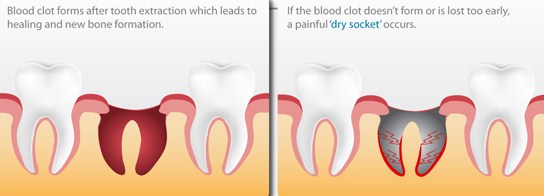Wisdom teeth removal can be a stressful and uncomfortable experience. But if you have recently had it removed, congrats on taking that big step towards oral health.
By now, you may be feeling some of the unpleasant side effects that comes with the procedure; swelling in the wound area, headache, and nausea. In some extreme cases, the nausea and vomiting is worse than the actual surgery itself. This unpleasant experience often has people asking, “Is this normal?” or “Did something go wrong?
Don’t worry, for you are not alone. Feeling nauseous after wisdom teeth removal is more common than you think.
In the rest of this article, we will explore the various causes of nausea following the wisdom teeth removal, as well as how you can alleviate the symptoms. So sit tight, read on, and let’s help that stomach of yours settle down.
Reasons for Nausea After Wisdom Teeth Removal
That uneasy, churning feeling in your stomach is hard to stomach (pun unintended), but why does this happen?
Nausea can be a result of one or more causes, from the anaesthesia to trauma incurred during the surgery. Here are some reasons why you may be feeling nauseous, and understanding them can be the first step to feeling better.
Firstly, post-operation nausea could be due to the anaesthetic drug used during the procedure. These drugs are widely known to cause side effects such as fatigue, headache, and nausea. These side effects usually go away in under 12 hours after the surgery, but may last up to 48 hours. Additionally, some patients also experience dry heaving, or retching without actually throwing up. This contributes to the feeling of uneasiness and discomfort in the stomach, causing nausea.
Secondly, it may be due to dehydration. Patients who have difficulty swallowing after their wisdom teeth removal often experience dehydration as they are unable to consume any food. When this happens, one can feel nausea because the body does not have enough fluid.
Thirdly, nausea may simply be due by stress and anxiety. The fear of having your tooth plucked out can be a terrifying thought, and the recovery process can be equally overwhelming due to the side effect. For some, the stress and anxiety the surgery can become the reason behind the feeling of nausea.
You may be interested in: Why Won’t My Teeth Whiten? All You Need to Know About Teeth Whitening
Lastly, it may be due to dry socket (alveolar osteitis). This painful complication occurs when the blood clot that is formed to fill up the ‘hole’ of the removed teeth is dislodged or removed. As a result, the underlying bone and nerves are exposed, causing a range of symptoms including persistent pain, bad breath, foul taste and nausea. That said, dry socket occurs in only 2-5% of patients who have their tooth pulled out.
Throwing Up and Dry Socket
can throwing up actually cause the blood clot to dislodge and lead to a dry socket? The short answer is yes, it’s possible. In the first 24 hours after the surgery, the blood clot may not be fully lodged in the socket.
When you vomit, the forceful action can dislodge that protective blood clot, just like a strong gust of wind can blow your hat off. The intense pressure from retching can be too much for your newly formed blood clot to handle.

Plus, the stomach acid involved in the act doesn’t exactly play nice with your surgical wounds. When the extraction site is irritated, the healing process is disrupted. It is important for you to consult your dentist if dry socket occurs as it may lead to further complications such as a slower healing of your wound and in some cases, bone infection.
Preventing Nausea After Wisdom Teeth Removal
While this is a common occurrence after wisdom teeth removal surgery, there are ways to prevent that stomach-churning episode from crashing your post-surgery party.
- Hydrate Slowly: Drink plenty of fluids post-operation to prevent dehydration. It is important to take slow sips of water or electrolyte drinks to help stabilize your system.
- Stop Narcotic Pain Medication: Nausea that persists days after your wisdom tooth removal may be due to the pain medication. Instead, take ibuprofen (Advil) or acetaminophen (Tylenol) to relieve the pain. Wait for your nausea subsides before you resume your prescribed medicine.
- Have Anti-Nausea Medicine: Medication such as dimenhydrinate (brand name: Dramamine) and meclizine hydrochloride (brand name: Dramamine Less Drowsy) work in different way to treat nausea. Before this, talk to your oral surgeon about whether these could be an option for you.
- Have the Right Diet: Avoid food that are spicy, greasy, or high in fat, as these can be harder to digest and may worsen nausea. Introduce bland foods like mashed potatoes, rice, or bananas back into your diet gradually
- Start Small: Consume small and frequent meals instead of three full meals a day. This helps to lighten the ‘workload’ of your stomach after every meal.
- Rest Up: Avoid strenuous activity and give your body time to rest from the surgery. This is important but often overlooked by patients who are eager to resume their usual daily activities.
- Practice Mindfulness: If your nausea is attributed to stress and anxiety, take deep breaths, listen to some soothing tunes, or meditate to keep your nerves under control.
It’s important to follow your dentist’s instructions for post-surgery care to reduce the risk of complications and promote healing. In all situation, the nausea should subside within a day after the surgery. Please consult your local dentist if the nausea becomes severe or persists 24 hours after the operation as it may be indication of something more serious such as an infection.
Closing Thoughts
To recap, nausea is a common but manageable side effect post-extraction, mainly due to anesthesia, pain meds, and sometimes even just the stress of the procedure.
While you can’t completely control how your body will react, you can arm yourself with knowledge and strategies. It’s like going into a quiz with all the study materials—you might not know every question that’ll come up, but you’re well-prepared to tackle them.
And remember, if symptoms persist, don’t hesitate to consult your oral surgeon or dentist. Because when it comes to your health, it’s always better to be safe than sorry.







